|
What's eating on you? Could it
be Parasites -
A Constant Battle -
What are parasites?
You have heard of
stowaways on ships. They slyly sneak on
board, find a secret place where they can
live, steal food, and then eventually jump
ship. Parasites are much like stowaways.
They get on or in a host, move to where
they want to be, gain nourishment, warmth,
and other amenities, and then they or their
offspring leave the host to find another.
In a broad sense, a parasitic relationship
is defined as one in which one organism
(the parasite) lives on or within the other
(host), and may cause the host harm.
|
Verminous
intoxication or Poisoning is the result of
a worm's waste toxins. It produces symptoms
such as dizzy', unclear thinking, high and
low blood sugar, hunger pains, poor digestion
and allergies. |
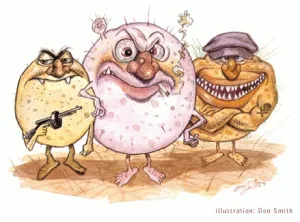
What exactly is a parasite? A parasite is an organism
that lives off the host, the host being you or
me. The parasites live a parallel life inside our
bodies, feeding off either our own energy, are
own cells or the food we eat, and even feeding
off the health supplements we use. In recent medical
studies, it has been estimated that 85% of the
North American adult population has at least one
form of parasite living in their bodies. Some authorities
feel that this figure may be as high as 95%.
The immediate question that comes to mind when people are informed
of this situation is: How can a parasite possibly live in my body
and I don't even know it is there? The answer to this is simple?
The purpose of a parasite is to not make itself known. A smart
parasite lives without being detected because if it is detected,
of course, something is going to be done to eradicate it. If you
think parasites are stupid, think again. They are highly intelligent
organisms. Not intelligent in the same way humans are, but they
are intelligent in their ability to survive and reproduce, which
is of course, the purpose of any organism on this planet. It sounds
pretty simple, doesn't it? And in
some ways it is, but , it can make life for humans very complicated.
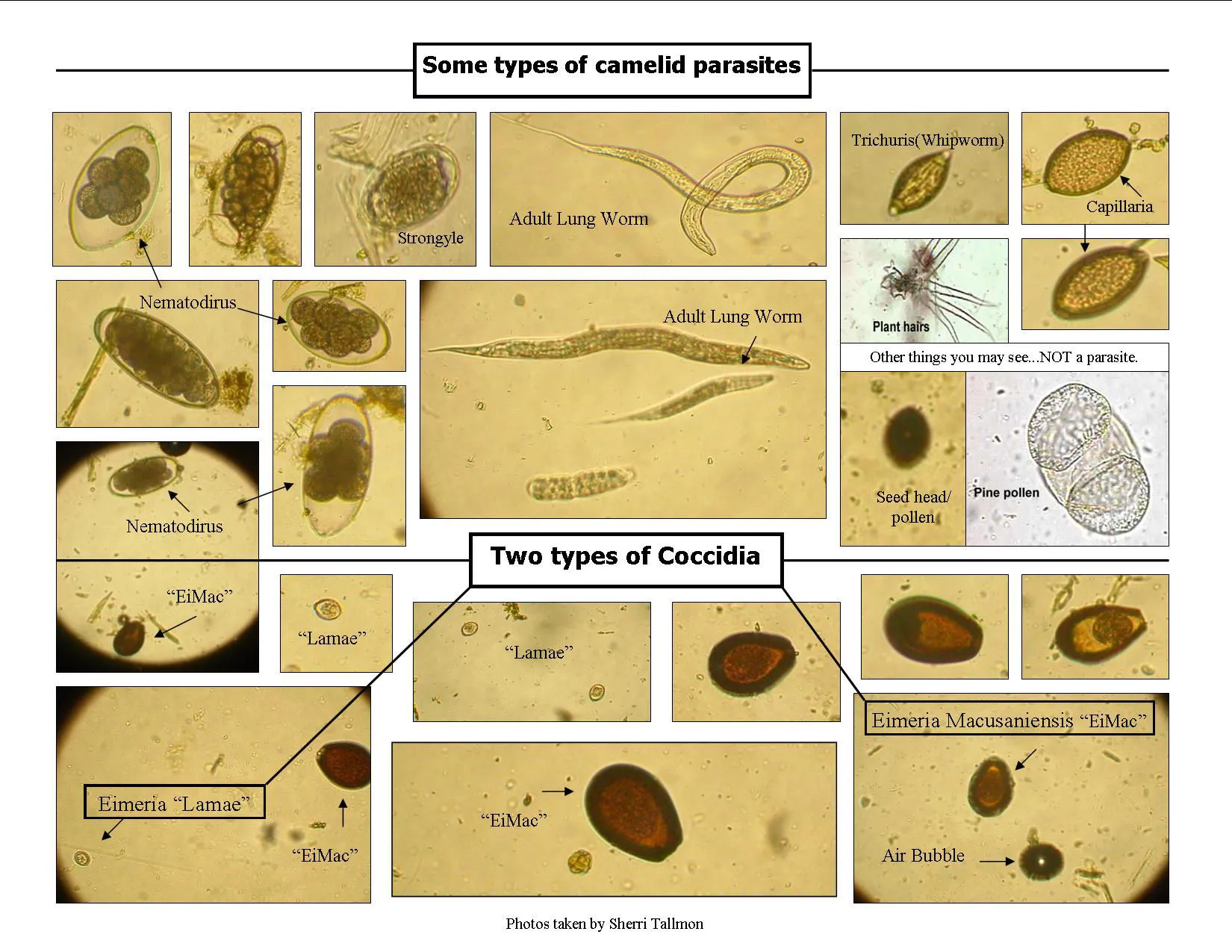
Click to enlarge
So how can a parasite exist in the body without
making it's presence known? If you know how to
read the body and interpret it's signals, then
the presence of a parasite can be determined quite
easily. However, if you accept that it is normal
to have low energy levels, health challenges, skin
rashes, pains, frequent colds, flu and constipation
(the list is endless for the things parasites will
cause), then you may never question whether you
have parasites.
PARASITES HARD TO DETECT AND HARD TO GET RID OF! Untill
now
If you were tested by a doctor for
parasites, chances are that the results would come
back negative. Does this mean that you do not have
parasites? Unfortunately, medical testing procedures
only catch about 20% of the actual cases of parasites.
Over 1,000 species of parasites can live in your
body, tests are available for approximately 40
to 50 types. This means that doctors are testing
for about 5% of the parasites and missing 80% of
those. This brings the ability to clinically find
parasites down to 1%.
Bob
beck DRUG CARTEL & FDA
Once you've established that you do have parasites,
taking drugs to get rid of them may not always
work. This is because a drug will often drive a
parasite from one organ of the body to another.
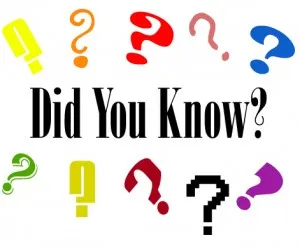
There are over 1,000 species of parasites, yet
today's medical testing procedures only screen
to identify about 50! There are two major categories
of parasites: large parasites, which are primarily
worms, and small parasites. Because of their microscopic
size, they can burrow into the muscle, bones, or
joints. Some of them may feed off the calcium linings
of the bones or even the protein coating on your
nerves, which can disrupt the nerve impulses to
the brain. Parasites also secrete toxins,
generating toxic build-up and stressing the immune
system.
"Parasites may consume minerals and food supplements before you do! Who
are you feeding first?" - Dr. Ross Anderson, N.D.
The sounds not the best
but the pictures tell the story
Do
you have any of these Symptoms
|
We
poison ourselves from our own toxic waste and
the waste from these creatures (auto intoxication)
when this ideal habitat for them is created. Your
bodies have to work twice as hard to remove
these toxic waste products and usually cannot
keep up, leading to an overall feeling of sluggishness
and fatigue, or even worse symptoms of disease.
 From
bacteria to parasites: Understanding the germs
that cause infection and Poisoning From
bacteria to parasites: Understanding the germs
that cause infection and Poisoning
Like it or not, everyone is affected by parasites
to a lesser or greater extent ... robbing you of
essential nutrition ... living, reproducing, dying
... weakening and damaging your body ... creating
wastes that burden or even poison your
body ... repeating the cycle over and over again
with each new generation ... in ever increasing,
larger numbers. The benefits of interrupting the
cycle and protecting yourself from further invasion
are obvious. ;
According to the Mayo Clinic,
bacteria, viruses and other infectious organisms
live everywhere. You can find
them in the air; on food, plants and animals; in
the soil and in the water; and on just about every
other surface -- including your own body. They
range in size from microscopic single-cell organisms
to parasitic worms that can grow to several feet
in length.
Documentation shows that once worms
or microscopic parasites are established
in the body, the following harm may occur:
Worms cause physical trauma to the
body by perforation of the intestines,
the circulatory system, the lungs, the
liver and wherever elsewhere they travel.
When chyme is released into the perforated
intestines it oozes into the lymph system
and allergies are the first response
by the body.
Worms can erode, damage, or block
certain organs. They can lump together
and make a ball causing blockage. They
can go into the brain, heart and lungs
and cause problems that are unbearable.
Parasites rob us of our nutrients
and take the best of our vitamins and
amino acids. Many people become anemic.
Drowsiness after meals is a sign that
worms may be present.
Lastly, these scavengers poison us
with their toxic waste. This poisoning
is a condition called, “verminous
intoxication”. In this case, an
already weakened body has difficulty
disposing of the parasites’ metabolic
waste. It can become very serious and
difficult to diagnose. |
Your immune system protects you against
an abundance of these infectious agents, and at
times, it's a tough task. Viruses and bacteria
are cunning adversaries, constantly seeking new
ways to breach your immune system's defenses.
Infectious agents:
A multitude of microscopic invaders
Bacteria are one-celled organisms visible only
with a microscope.
They're so small that if you lined up a thousand
of them end to end, they could fit across the end
of a pencil eraser. They're shaped like short rods,
spheres or spirals. They're usually self-sufficient
and multiply by subdivision.
But when infectious bacteria and Parasites enter
your body, they can cause illness.
They rapidly reproduce, and many produce toxins poisons--
powerful chemicals that damage specific cells in
the tissue they've invaded. That's what makes you
ill.
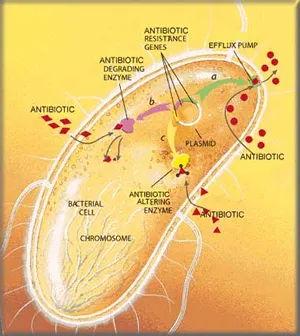 |
Bubonic, pneumonic, and septicemic
plague, cholera, tuberculosis, and many other
illnesses and disease are caused by the small
group of known bacteria that negatively affect
our bodies. It is well known and documented
that these diseases and the bacteria that cause
them have mutated dramatically in recent years.
The overuse of antibiotics in the past and
present has caused these bacteria to mutate
and become immune to modern medical remedies.
|
What
is a virus? Virus is the Latin
word for poison.
Since the beginning of time, people have been
plagued with viruses. They seem to come and
go causing epidemics and outbreaks that make
many people sick and in some instances cause
death. A virus is simply a clump of DNA material
contained within a protein coating. And, unlike
bacteria, they can only become active inside
a live host. Silver kills viruses
Monsters Inside Me: The Eye-Eating
Parasite : Video : Animal Planet
Lyme Disease
With the Babesiosis Parasite Loose Are
Eastern States Safe?
Will Babesiosis challenge Lyme Disease? A new parasite is
rising as a rare disease.
With the Babesiosis parasite loose are
eastern states safe?
Though the disease has been primarily
a disease of the Eastern seaboard (New
Jersey, New York, Connecticut and Massachusetts)
it has appeared in other states and can
be anywhere deer and other animals carry
the ticks.
The disease caused by this parasite is
most pronounced on people with weakened
immune systems. Deaths have occurred most
often in people who have had there spleens
removed although untreated the disease
can be fatal to anyone. More info here |
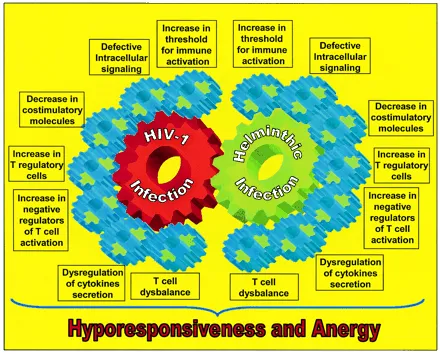
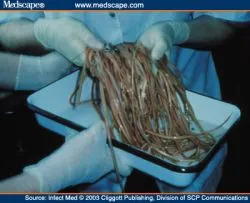
Microscopic protozoans harm more
people than any other parasitic disease. The cyst
or resting stage of this parasite is very resistant
to temperature, dryness and chemicals, which are
found everywhere in our environment. People ingest
these cysts, which then "hatch" in our
bodies. although we are commonly exposed to protozoans,
our immune systems usually keep them under control,
but people with a weakened immune system or toxic
condition cannot fight off these parasites as easily.
Protozoans can be found in the intestines, lungs,
muscle tissue and the digestive tract, releasing
toxins and tissue destroying enzymes. Protozoan
infections may be associated with arthritis, asthma,
degenerative muscle diseases, Hodgkin's disease,
lymphoma, MS., ovarian cysts, psoriasis, cutaneous
ulcers, dermatitis and more.
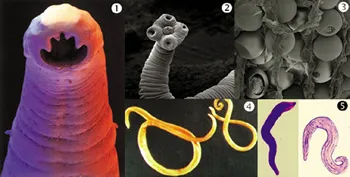
Removing parasites
and poisons from vegetables and fruits
If you eat a lot of fresh fruits
and vegetables like I do, you
might be concerned with the amount
of chemicals and parasites they
come with from your local super-market
or even a farmer’s market.
That’s right- your organic
produce you buy may not have
as many poisons but still has
so many microorganisms that you
can’t afford not washing
it thoroughly anymore.
To remove all the parasites
and poisons from your vegetables
and fruits, use this safe but
effective way(don’t waste
your money buying special products
for this)....a simple Water
Ozonator should
do it
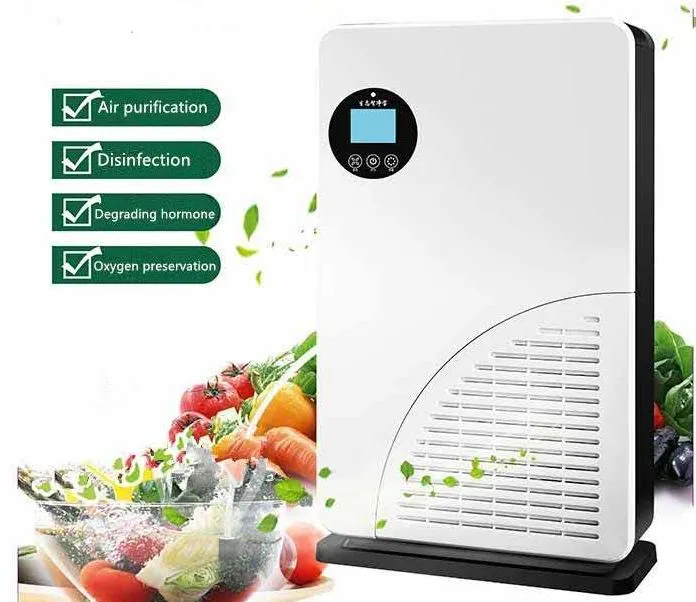
Just
put your fruit or vegetables
in a bowl
and OZONATE for 15 mins >>>more
info |
Monsters
inside me Watch
the Video
Parasites
may do any or all of six things:
Intestinal parasites and organ parasites cause
physical damage to the body by perforating the
intestines, circulatory system, lungs, liver, other
organs and tissue essentially making Swiss cheese
of them. Food allergies, for example, may be one
of the indications of a parasitic condition of
the intestine which allows food to leak into the
lymph system, causing an immune response to the
leaked material.
Weaken, damage or block certain organs just with their presence.
Lump together into a mass. Parasites may exist in the brain, heart,
lungs, other organs, structures and tissue of your body.
Weaken the host by robbing the host of essential nutrients, taking
a portion of the nutrients on which the host depends.
Poison the host with their
wastes. In the best case, the host does
double duty disposing of its waste and that of the parasites.
Worse, when the host has difficulty disposing of the parasite’s
wastes, a poisoning occurs called verminous intoxication.
Fool the host’s immune system into believing the parasite
is part of its body. The parasitic population is allowed grow unaffected
by any of the body’s normal defense mechanisms.
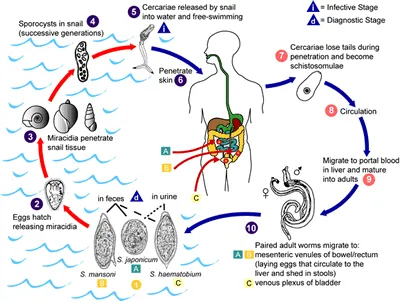
Symptoms
of intestinal parasites, colon parasites and
organ parasites may include:
 Constipation: due
to worms actually blocking the intestine. Constipation: due
to worms actually blocking the intestine.
 Diarrhea: certain
parasites release a hormone like substances
that can lead to a watery stool. Diarrhea: certain
parasites release a hormone like substances
that can lead to a watery stool.
 Gas
and Bloating: Some human parasites
that live in the small intestine causing inflammation
that produces gas and bloating. Gas
and Bloating: Some human parasites
that live in the small intestine causing inflammation
that produces gas and bloating.
 Irritable
Bowel Syndrome: Human parasites
can irritate, inflame and coat the lining of the
intestines causing symptoms of this disease. Irritable
Bowel Syndrome: Human parasites
can irritate, inflame and coat the lining of the
intestines causing symptoms of this disease.
 Joint
and Muscle Aches and Pains: Parasites
can migrate and become enclosed in a sac in joint
fluids, worms can do this in muscles as well. Joint
and Muscle Aches and Pains: Parasites
can migrate and become enclosed in a sac in joint
fluids, worms can do this in muscles as well.
 Anemia: Some
intestinal worms attach themselves to the lining
of the intestines; feeding on the vital nutrients
of the host. Worms leach nutrients from the human
host. In large enough numbers, they can create enough
blood loss to cause a type of iron deficiency Anemia: Some
intestinal worms attach themselves to the lining
of the intestines; feeding on the vital nutrients
of the host. Worms leach nutrients from the human
host. In large enough numbers, they can create enough
blood loss to cause a type of iron deficiency
 Allergies: Parasites
can penetrate the intestinal lining allowing large
undigested food particles into the body which can
create the immune system response that is often
assumed to be an allergy. Allergies: Parasites
can penetrate the intestinal lining allowing large
undigested food particles into the body which can
create the immune system response that is often
assumed to be an allergy.
 Growths
- parasites can clump together
causing tumors or Cysts. Growths
- parasites can clump together
causing tumors or Cysts.
Parasites are also found in cancer patients. There is some discussion
about whether the parasites abound in the body due to a weakened
immune system or if they are a factor in the cause of degenerative
diseases or both.
 Skin
Conditions: Intestinal worms
can cause hives, rashes, weeping eczema and
a whole host of other skin conditions. Skin
Conditions: Intestinal worms
can cause hives, rashes, weeping eczema and
a whole host of other skin conditions.
| A fascinating article.
Dr. David Whitworth, a biochemist at Aberystwyth
University who has studied the transmission
of infections, told The Huffington Post in
an email.
“Flu can be transferred by touch, but
so can fecal bacteria and hospital superbugs
like MRSA” or Methicillin-resistant Staphylococcus
aureus, he said.
Infections like the norovirus spread easily
by hand-to-hand contact, and one study conducted
by Whitworth and his colleagues found that
a single handshake can transfer hundreds of
millions of colony-forming units of E. Coli — that
is, after volunteers in the study had been
exposed to the bacteria.
So, instead of shaking hands, the 2014 research,
published in the American Journal of Infection
Control, suggested some better alternatives
for greetings. The findings revealed that a
high-five transmits only half as many germs
as many germs as a handshake, while a fist
bump transmits only one-twentieth of the germs
of a handshake.
“We found that handshakes can transfer
many more bacteria than high-fives or fist
bumps, so the nature of the contact matters,” Whitworth
said. “Contamination also depends on
hand hygiene habits.”
A big part of the problem is that many
people don’t have very good hand hygiene habits.
A whopping 33 percent of Americans don’t
wash their hands after going to the bathroom.. "
Unknown |
 Nervousness: Human
parasites create wastes and toxic substances
that can be severe irritants to the
central nervous system. Restlessness
or anxiety are often the symptoms associated
with these parasitic wastes. Nervousness: Human
parasites create wastes and toxic substances
that can be severe irritants to the
central nervous system. Restlessness
or anxiety are often the symptoms associated
with these parasitic wastes.
 Sleep
Disturbances: Multiple awakenings
at night between the hours of 2 and 3 AM are possibly
caused by the liver attempts to flush toxic wastes,
produced by parasitic infestations, out of the
body. Sleep
Disturbances: Multiple awakenings
at night between the hours of 2 and 3 AM are possibly
caused by the liver attempts to flush toxic wastes,
produced by parasitic infestations, out of the
body.
 Tooth
Grinding and Clenching: This has
been observed in patients with known cases of human
parasitic infestations. Tooth
Grinding and Clenching: This has
been observed in patients with known cases of human
parasitic infestations.
 Chronic
Tiredness: fatigue, flu like complaints,
apathy, impaired concentration, depression, and
memory problems. The human parasites are simply
stealing your food and nutrients and overwhelming
your body with their wastes. Chronic
Tiredness: fatigue, flu like complaints,
apathy, impaired concentration, depression, and
memory problems. The human parasites are simply
stealing your food and nutrients and overwhelming
your body with their wastes.
 Immune
System Dysfunctions: Human parasites
depress the immune system by the continued stimulation
of the immune system which over time exhausts your
defense system. Immune
System Dysfunctions: Human parasites
depress the immune system by the continued stimulation
of the immune system which over time exhausts your
defense system.
 Excess
Weight, Acne and Others: These
can be telltale signs of parasitic invasion including,
excessive hunger, asthma, bad taste in the mouth
and bad breath, epilepsy, migraines and even heart
disease and other degenerative disease. Excess
Weight, Acne and Others: These
can be telltale signs of parasitic invasion including,
excessive hunger, asthma, bad taste in the mouth
and bad breath, epilepsy, migraines and even heart
disease and other degenerative disease.
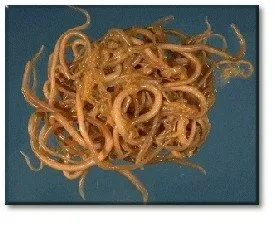
Verminous
intoxication is the result
of a worm's waste toxins. It produces symptoms
such as dizzy', unclear thinking, high and
low blood sugar, hunger pains, poor digestion
and allergies.
A MUST WATCH The
Cryptosporidium Parasite 01:52
Everyone can be affected by intestinal
parasites, colon parasites and even organ parasites;
robbing you of essential nutrition, living, reproducing,
dying, weakening, and damaging your body, creating
wastes that burden or even poison your
body, repeating the cycle over and over with
each new generation, in increasingly larger numbers.
Skin parasites are under-researched, under-documented
and poorly understood. The medical community is
slow to respond and not really sure how to treat
or even diagnose this affliction. There are many
unanswered questions and most Skin Parasite victims
feel confused or abandoned. One thing is certain,
Skin Parasites are much more common than one may
think.
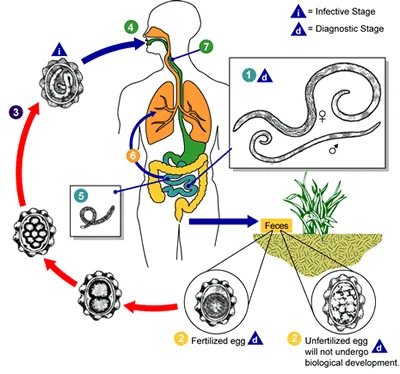
Over
150 different types of colon parasites,
intestinal parasites and organ parasites affect Human wellbeing.
The different
ways that bacteria can affect the human
body are:
 An
infection which weakens the immune system
and allows other biocontaminants which
would normally be under control to affect
the human host. An
infection which weakens the immune system
and allows other biocontaminants which
would normally be under control to affect
the human host.
 An
infection to a healthy immune
system that has been transmitted
by airborne inhalation. (Tuberculosis
and Legionnaires Disease) An
infection to a healthy immune
system that has been transmitted
by airborne inhalation. (Tuberculosis
and Legionnaires Disease)
 A
contagious bacterial infection that can be
found on any surface where an organism might
grow or attach. A
contagious bacterial infection that can be
found on any surface where an organism might
grow or attach.
 By
being transmitted from the excrements of rats,
squirrels, and birds. Often these bacteria
will become airborne by attaching to tiny particles
and moisture. By
being transmitted from the excrements of rats,
squirrels, and birds. Often these bacteria
will become airborne by attaching to tiny particles
and moisture.
 By
causing or contributing to hypersensitivity
pneumonitis, chronic fatigue, irritability,
depression, dermatitis, respiratory infections,
asthma, sinus infections, ear infections, skin
infections, Legionnaire?s Disease, meningitis,
tuberculosis (TB), pneumonia, allergic rhinitis,
chronic bronchitis, humidifier fever, cold
and flu-like symptoms, and many other conditions
of compromised health. By
causing or contributing to hypersensitivity
pneumonitis, chronic fatigue, irritability,
depression, dermatitis, respiratory infections,
asthma, sinus infections, ear infections, skin
infections, Legionnaire?s Disease, meningitis,
tuberculosis (TB), pneumonia, allergic rhinitis,
chronic bronchitis, humidifier fever, cold
and flu-like symptoms, and many other conditions
of compromised health.
By releasing endotoxins that are also infectious agents.
When
a person is exposed to these biocontaminants
for prolonged periods of time with
a weakened immune system, they WILL
become infected.
But you can give your immune system a
fighting chance by understanding a little
bit about the various kinds of microbes,
what you can do to avoid infection and
under what circumstances you should seek
medical care.
Deal with parasites in the spring, after
a long winter of close contact with other
humans
Why wait? The benefits of dealing with
parasites, interrupting their life cycles
and protecting yourself from further invasion
are obvious
People are still squeamish when it comes
to parasites although, the issue has been
around for as long as mankind. We can accept
our pets or people in third world countries
as having parasites, yet we tend to be
naive about having parasites ourselves.
Reality is that we are not immune to these critters. For
the most part, we do not notice the effects of parasites
on our Systems, mostly because we have adapted to them and
attributed other issues to their effects Stop Kidding Yourself
- Just Get Rid of Them.
Understanding the Bob Beck
Parasite Protocol
Parasite
Blood Cleansing Tools |
As Bob Beck has said, the only thing keeping
the devices and procedures mentioned in
these pages from working is if a person
doesn't use them. Too many times I have
listened to people complain repeatedly
about their health problems, declaring
they are willing to do almost anything
to get relief. Yet these same people somehow
never quite manage to actually do anything.
Bob Beck Protocol
|
|

